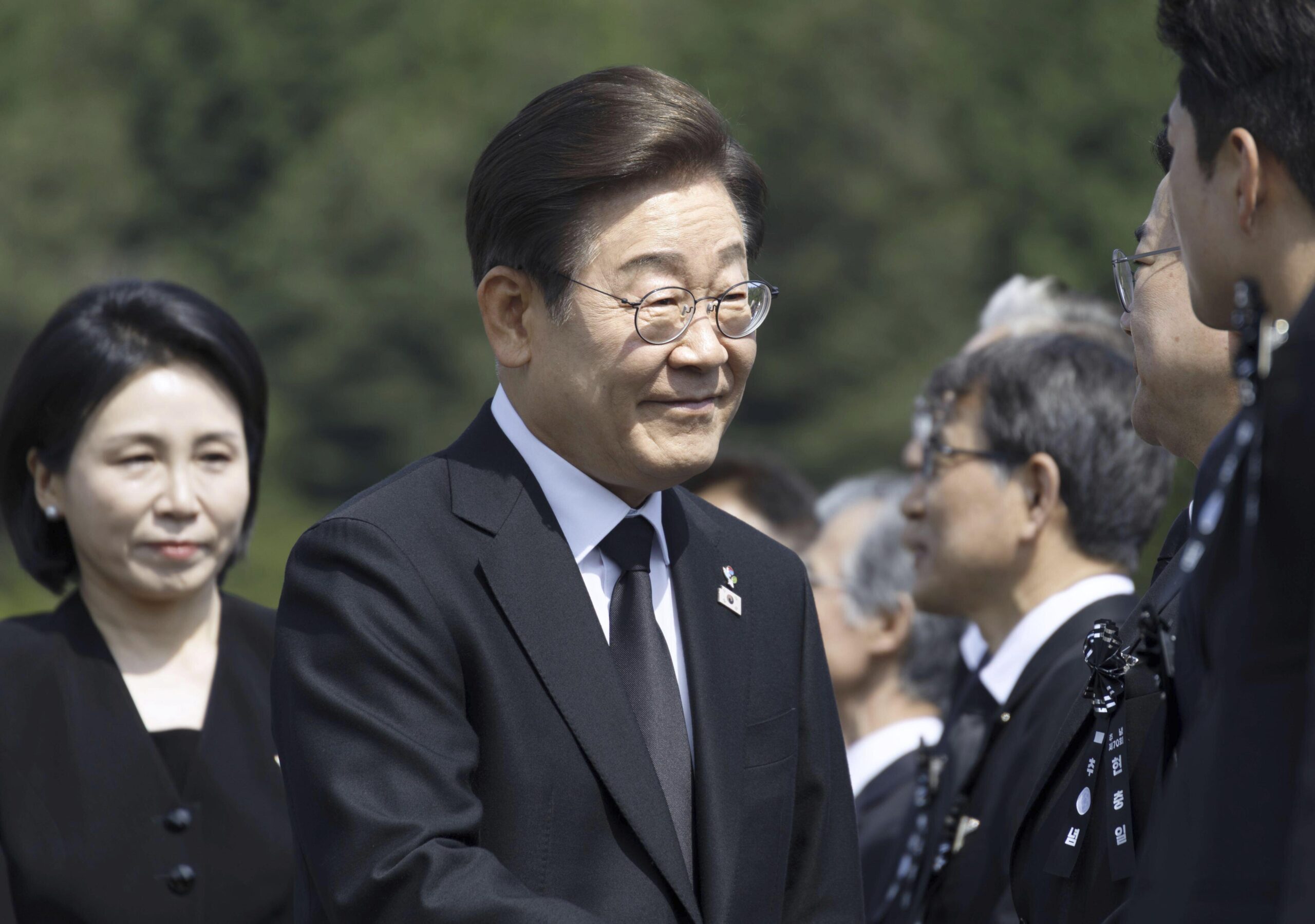
South Korea’s newly minted President Lee Jae-myung, during his first conversation with Chinese counterpart Xi Jinping Tuesday, asked for help reining in North Korea’s Kim Jong Un regime.
Lee, who, during the recent campaign, championed a pragmatic approach to diplomacy, hopes Beijing will use its influence as North Korea’s longtime benefactor to push that country toward walking back its nuclear weapons program.
Yet the Chinese leader is unlikely to do so, some analysts say.
Why It Matters
The 30-minute call comes as Lee, a liberal from South Korea’s Democratic Party, seeks to ease tensions on the Korean Peninsula. North-South relations are at their most strained in decades amid Kim’s frequent ballistic missile tests and North Korean troop deployments to support Russia’s war against Ukraine.
Lee is also expected to tread carefully as he balances relations with his country’s largest trading partner—China—and key security ally—the United States. Lee must also grapple with a slowing economy and trade negotiations with U.S. President Donald Trump.
Newsweek reached out to the North Korean Embassy in China, South Korean Embassy in the U.S., and U.S. State Department vie emailed requests for comment.
What To Know
During his 30-minute phone call with Xi, Lee expressed hope the two countries would boost cooperation and exchanges in a range of areas, from security to people-to-people exchanges, the Yonhap News Agency quoted Lee spokesperson Kang Yu-jung as saying.
Lee also called on his Chinese counterpart to play an active role in advancing denuclearization on the peninsula, which he said is in both nations’ interests.
Kang also told reporters the Chinese leader offered assurances that he would attempt to help resolve the nuclear weapons issue.
Chinese officials have yet to confirm this remark by Xi.
“Both sides should respect each other’s core interests and major concerns, firmly steer the overall direction of bilateral relations, and ensure that the China-ROK [Republic of Korea] relationship always moves forward on the right track,” the Chinese Foreign Ministry said in its statement on the call, using South Korea’s official name.
Kyodo via Associated Press
China, which for decades has helped prop up North Korea’s fragile economy, joined the other four U.N. Security Council members in voting for the current sanctions regime following North Korea’s fourth and fifth nuclear weapons tests in 2016.
North Korea maintains its nuclear weapons are necessary to deter aggression from the U.S. and its allies—and, in 2023, the country moved to enshrine the weapons in its constitution.
In a departure from his impeached predecessor, hard-liner Yoon Suk Yeol, Lee has been seeking to de-escalate tensions with North Korea.
On Wednesday, he reportedly shut down the loudspeakers broadcasting daily anti-North propaganda near the border; South Korea’s Defense Ministry said it was part of a broader effort “to restore trust in inter-Korean relations and promote peace on the Korean Peninsula.”
Seoul’s Cold War-era practice had resumed last year in retaliation for trash-laden balloons the North sent across the border—itself a response to balloons launched by activists carrying anti-Kim leaflets and USB sticks loaded with South Korean media.
Last year, Kim abandoned North Korea’s historical goal of reunification with the South, which—despite a 1953 ceasefire—technically remains in a state of war. The North also amended its constitution to label its neighbor its “primary foe.”
What People Are Saying
Sean King, Asia scholar and senior vice president of New York-based consultancy Park Strategies, told Newsweek: “China has no real interest in curtailing North Korea’s nuclear weapons, as they help keep the United States and regional treaty allies South Korea and Japan off balance and help perpetuate Korea’s division, which serves Beijing’s interests.
“What’s more, Kim’s burgeoning relationship with Vladimir Putin gives him options and would make him even less interested in any corrective comments that Xi might have.”
Patrick Cronin, Asia-Pacific security chair at the Hudson Institute, told Newsweek: “First, President Lee seeks to reassure Beijing by demonstrating sensitivity to China’s core interests, thereby encouraging favorable or at least stable bilateral relations.
“Second, he aims to offer President Xi Jinping an opening to reassert diplomatic influence over the Korean Peninsula, thereby counterbalancing what Beijing may perceive as growing Russian sway over the Kim regime.”
What Happens Next
Lee reportedly invited Xi to attend the Asia-Pacific Economic Cooperation summit in November at the city of Gyeongju.
The South Korean leader is expected to meet with Trump on the sidelines of the June 15-17 Group of Seven summit in Alberta, Canada.
